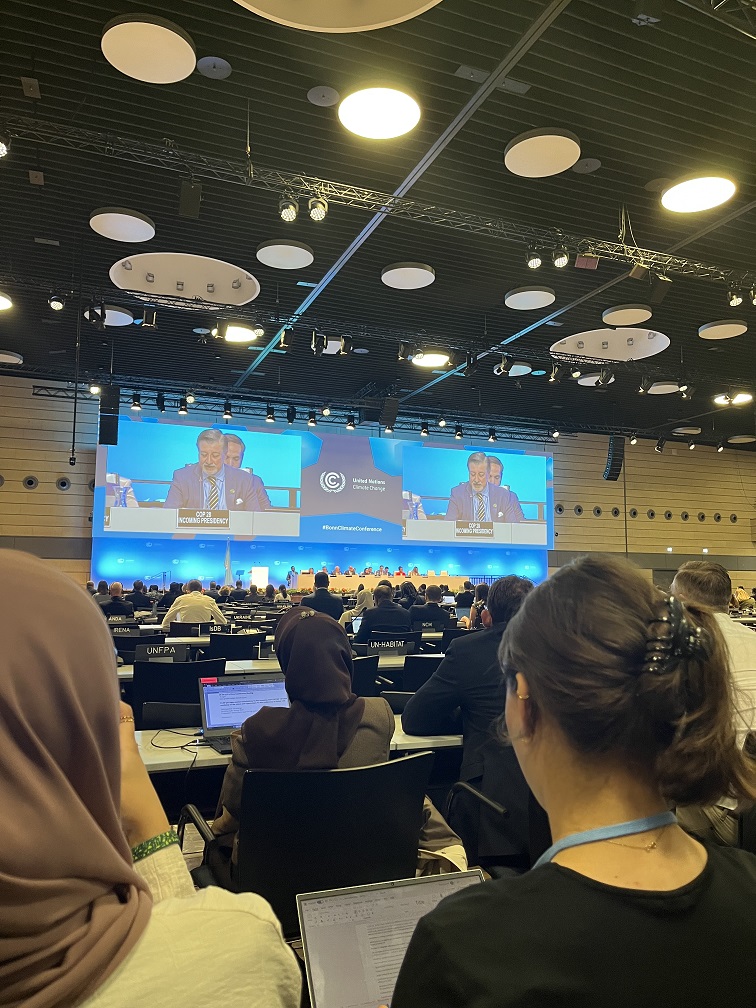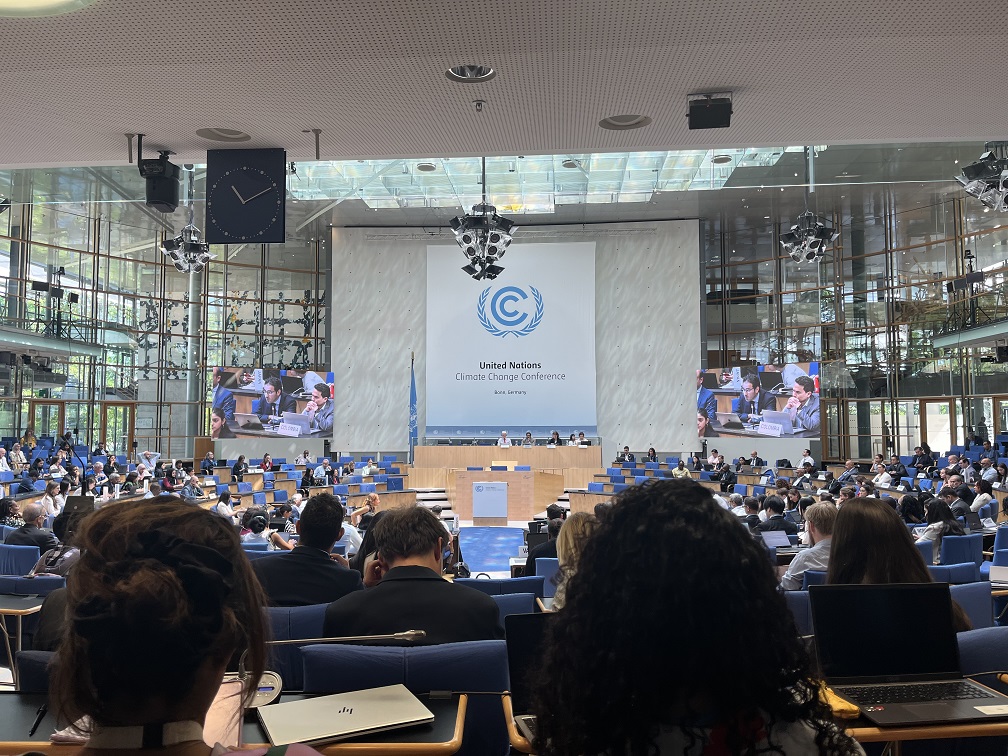The conference, hosted by the UN Framework Convention on Climate Change (UNFCCC) was focused on negotiations and technical dialogue preparing for COP28 (the United Nations Climate Change Conference or Conference of the Parties) in Dubai later this year. I had the opportunity to attend the conference in Germany with the support of the SNF Paideia Program.
One of the central issues discussed at the conference was the Global Stocktake report, the first assessment to measure the impact of the Paris Agreement. Another central issue was funding mitigation efforts, which wealthier countries were particularly interested in, versus also funding adaptation and loss and damage efforts, which low- and middle- income countries (LMICs) were more focused on. This discussion included the failed goal of a $100B fund from developed countries for climate finance in developing countries. This clash led to slow progress on forming the agenda for COP28, one of the main objectives of the SB58 conference. This discussion centers around who is responsible for climate change. LMICs, who are much less responsible for the impacts of climate change than high-income countries (HICs), are angry at the disproportionate impacts of climate change on their countries.
Under Mexico’s current presidency, we have seen the tremendous destruction of biodiversity in the name of tourism projects. A main focus on my geothermal research is to apply the technologies in developing countries. By attending the conference, I hoped to become better informed about the latest advances in both technology and policies in these areas at the conference. Though these conversations were present in smaller discussion rooms, the main discussion rooms disregarded most concrete solutions.
DEBATE OVER HOW TO REACH NET ZERO CARBON EMISSIONS BY 2050
For example, in dialogue about the net zero by 2050 goal, developing countries raised the point that developed countries need more ambitious goals than net zero by 2050. Since it has taken 70 years for
developed countries to peak in their emissions, the developing countries would take longer to reach net zero than the developed countries. Therefore, developed countries need a more ambitious net zero target date than the global average to give developing countries more leeway. Logic and understanding of responsibility in the goals and agendas is central to productive discussion. Rather than a focus on viable and urgent solutions through a framework that allows countries present to collectively work, the fragmented discussions and ambitions of the countries led to stagnant and unproductive discussions. Within loss and damage conversations, the process of loss and damage funding and implementation came into question. While the current model is based on pre-arranged trigger-based funding modalities, a method based on flexible delivery channels would be more efficient and effective.
AN INTEGRATED APPROACH TO CLIMATE CHANGE IS THE PATH FORWARD
Alongside the larger events, there were many side events, which focused on topics from ocean biodiversity to food systems. Focus points on areas other than energy, such as food and agriculture, health, and biodiversity, are vital. However, many parties dismissed solutions in these areas as not sufficiently impactful to merit discussion even though it is precisely these topics that lead to concrete solutions.
The YOUNGO, the official children and youth constituency of the UNFCCC, parties and observers also worked on building actions to give the discussion more urgency and productivity on specific issues. Especially with this group and other parties, I am hopeful that discussions like this can spur productive change. It will take constantly being part of these discussions and adding the needed urgency and focus on solutions to make the change needed a reality.





